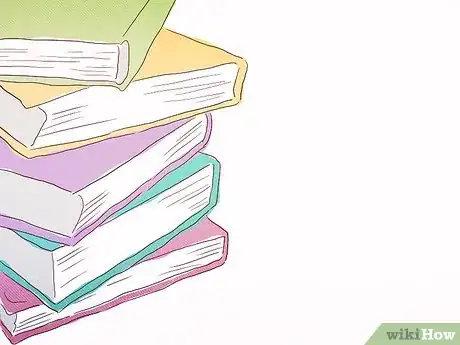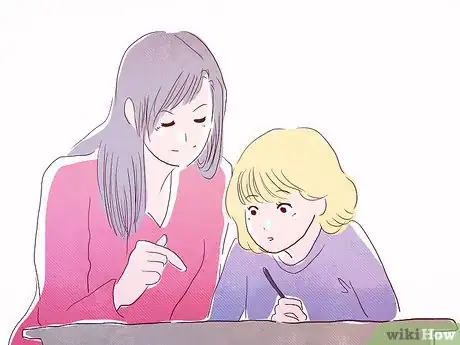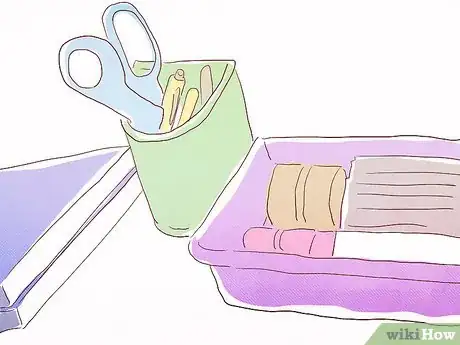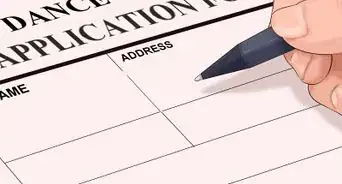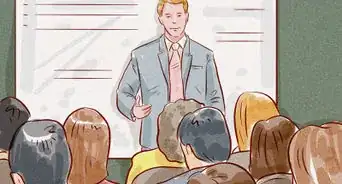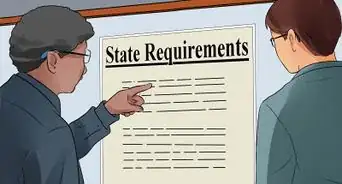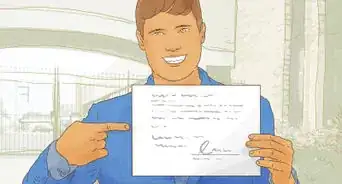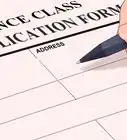X
wikiHow is a “wiki,” similar to Wikipedia, which means that many of our articles are co-written by multiple authors. To create this article, 32 people, some anonymous, worked to edit and improve it over time.
This article has been viewed 219,225 times.
Learn more...
After studying hard, and having great enthusiasm for a teaching career, it can come as a shock to your system to try your skills as a student teacher. It's most likely that you'll find it tiring, and at times challenging. And, it's a new way of seeing the classroom and being a part of it from your own time as a classroom pupil.
Steps
-
1Read all the materials you've been given about student teaching prior to entering the classroom. Trying to wing it, without plans that you believe in, or to catch up on unread portions as you're going won't help you while you're actually in the classroom.
-
2Be open to criticism. As a student teacher, think that making mistakes is normal; so don't make anything of it. Bear in mind that no one is perfect. Even experts sometimes get off track when they are distracted. Just don't give up, persist and you will improve with practice.[1]Advertisement
-
3Do your background research to find out about the school in advance. Learn its rules and regulations, including any dress code information (all of this will help you if students test you, trying to find out how much or little you're aware of). Find out what areas are considered "out of bounds" to students, find out where staff hang out, and even whether it's possible for you to get a car parking sticker or permit. Every small thing matters for a smooth experience.
- Learn about the school district, school boards (if relevant), parent teacher associations, and all acronyms accompanying these things.[2]
- Know where forms for student permissions, etc. and other important documents are located.
- Ask if there are any legal issues or restrictions that you need to be aware of if you haven't already been taught these as part of your teacher training.
- Search online for resources to help new teachers. There are sites with information suited to student and new teachers, and you might also be able to find forums to connect with others in your position, to share stories and support.
-
4Make only about 5 or 6 set rules; the rest are procedures and processes for each activity and situation, not rules as such: turning in work, testing expectations, lab, phys ed, art, halls, restroom, library, etc. each need simplified procedures quickly instructed or refreshed on that event (each time).
Have your basic classroom rules sorted before you stand in front of your class for the first time (for example, raise hands when you want to communicate, respect others, be prepared to listen, etc.). You are then able to discuss these with students from the outset. -
5Talk with the teacher who is responsible for overseeing what you're doing. Ask what his or her teaching philosophy or expectations are, along with learning about the expected teaching program for the duration of your time working with him or her. Be sure to find out whether you have free reign or restrictions on teaching methods, topics, and other relevant issues. Also aim to have a regular meet-up time for discussion or asking questions as you work through your student teacher time.[3]
-
6Expect to be nervous. When you first enter the classroom, it's probable that your head will be filled with all the things you've been taught about teaching. While all of that is important, set aside the need for perfection and concentrate on quelling your nerves and fears. The students will be expecting you to appear confident, relaxed and at ease. As such, fake it until you make it! And, approach the entire experience with a positive attitude, expecting to find the experience a good one -- and you're more likely to find this as a result.
-
7Stay natural. It's important to be attentive to detail but not expect to be perfect in what you think a teacher should be. Avoid unnecessary confrontations. Acknowledge that you're still a student yourself, and realize how a student pretending to be a tough teacher must look! The students will cut you some slack, if you're friendly, affable, and approachable -- firm but not rigid.
-
8Don't overdo anything. It's important not to produce a caricature of a teacher. Your real task is to convey information to students, with you as the conduit. It is not to convince students that you're a model teacher. However, there is nothing wrong with sharing your passion for teaching with them! Things to consider include:
- Avoid coming across as too scary or too strict. You're still a student, remember! Would you have liked it, if your teachers had done that to you? Show the students that you know how they feel, and that you're on their wavelength. Accept the newness of the situation for both of you.
-
9Move around. Be complimentary as you go, and you'll be welcomed and helped by students. Be a facilitator. ~ Don't sit in one place. Kneel or sit, but realize that stooping low may put your posterior in someone space -- and squatting is awkward or humorous.
-
10Walk toward a disturbance. Flex; float: say, "I'll come back in a minute...", if a student seems frightened or angered by your attention. ~ Don't act overly bossy: just be matter of fact.
-
11Earn respect. While you may feel that this contradicts the previous steps, it is possible to earn respect without being scary, too strict -- or too chummy with the students. Do this through a confident demeanor, and by conveying that you expect compliance with simple rules or boundaries. In addition, if something does happen requiring discipline, make it clear that you're not beyond reporting poor behavior to those in the chain of command who have authority to deal with it by actually reporting conduct. It will only need to happen once for students to understand that you're not a pushover.
- Try hard not to sound nervous. If you fear this, it's more likely to happen. Make the most of pauses, and taking deep breaths to recover your composure before speaking. Smile. Be enthusiastic, but not over doing it. There is no need to rush.
- Do not fear being disliked. Some students will always push boundaries and make it seem they dislike you. The reality, however, is that most students will respond far more respectfully to a student teacher sticking to well-defined boundaries than giving in, or acting disappointed that you're not liked. Your are not there to be a buddy.
-
12Respect the students. Speak respectfully and show support (Say, "Thanks for your attention." or "May I show you this..." or "Right!" or "Good idea. Also, try this."). Critique the work, not the student. Respect earned is respect best returned. Avoid using your authority as a power trip that causes you to forget that students are people, too. Go back to the roots of why you took up teaching, if you feel you're losing any sense of perspective about the students.[4]
- Be genuine. Show real interest in your student's efforts and praise their work when you have the opportunity.
-
13Be organized and be prepared. Always come to the lesson prepared. All professional teachers are expected to be prepared, so it would be a mistake if you as a student teacher didn't. This is training for your future career; make the most of it.
- Schedule a timetable for marking and preparing work. This is your first chance to experience the intensity involved in teaching, in which you need to be present mentally the entire time you're teaching, and then find a second wind for marking and preparation. This is a fantastic time to develop time management and personal organization skills that will set you in good stead for the rest of your teaching career.
-
14Keep your promises. If you tell your students you will have the quizzes, special projects, or homework checked by next week, always do as you've promised. Set an example for them to see and respond to; otherwise, you can't expect them to do what they're supposed to!
-
15Set out to enjoy your student teaching experience. Being a student teacher can, and should, be really fun. It is a chance to meet new people (usually only a few years younger than you), earn some money or credits, and to find your rhythm. Use your sense of humor to its best advantage to engage others and to make light of some of the more challenging aspects; in that way, you're set to enjoy your experience a great deal more.
- Mingle with the other teachers. Be early; stay late. Seek information: Listen. The the staff can be a great source of information, support, ideas, and future contacts. Do your best to develop good relationships with amiable faculty members.[5]
- Make good friends with parents. Keeping in touch with parents regularly will establish an excellent rapport, and it helps to pass on something positive that their child has done now and then.
- If it's permissible, after lessons socialize on campus with your students while having a coffee or a chat together. Do not be personal buddies. This will depend on the student's age and type of school you're teaching at; it might not be appropriate. At the very least, attend social functions held for the students during the term, such as dances and sports events.
- When mingling with the other teachers, you may make good friendships with them (don't expect too much, too soon); also, don't judge them or yourself; do not be quick to spread rumors or gossip that can come back to you and ruin your relationships with them.
Advertisement
Community Q&A
-
QuestionWhat is a lesson plan?
 Benny CabugsanCommunity AnswerIt is a written plan of your lesson that serves as your guide for conducting the class.
Benny CabugsanCommunity AnswerIt is a written plan of your lesson that serves as your guide for conducting the class. -
QuestionHow many degrees should a teacher have?
 Community AnswerA graduate of any degree related to education needs only one. On the other hand, a graduate of courses other than teaching is required to get units that fall under CPT or Certification for Professional Teachers.
Community AnswerA graduate of any degree related to education needs only one. On the other hand, a graduate of courses other than teaching is required to get units that fall under CPT or Certification for Professional Teachers. -
QuestionHow do I act normal when I'm nervous in the classroom?
 Community AnswerStay as calm and consistent as you can. If you stay confident, the students will take that into consideration and will potentially like you more just for that reason. Try telling a funny story about yourself or a cheesy joke before you do anything else. That will lighten the mood, while also giving your students something to look forward to every day if they aren't excited to go to school. If the students are happier, I guarantee you will be too.
Community AnswerStay as calm and consistent as you can. If you stay confident, the students will take that into consideration and will potentially like you more just for that reason. Try telling a funny story about yourself or a cheesy joke before you do anything else. That will lighten the mood, while also giving your students something to look forward to every day if they aren't excited to go to school. If the students are happier, I guarantee you will be too.
Advertisement
Warnings
- Take care not to let your personal intensity at doing really well cross over to demands on parents to improve their children's performance. Always double check where your expectations are stemming from before upsetting a parent about a child's progress.⧼thumbs_response⧽
- A teacher's work is never done. If you feel that being a student is bad enough, teaching won't change that ever-present feeling of having things queued up to do always, even during vacation time! Learn to love it for what it is – a career you chose out of love and passion.⧼thumbs_response⧽
- Be diplomatic about everyone, all of the time. You haven't established your career yet; so take care with loose lips and be impeccable instead.⧼thumbs_response⧽
- Sometimes you'll be at the receiving end of parental anger. Be gentle on them and yourself; stay polite, calm, and respectful and try your best to hear them out. Many times, the best thing you can do is to listen to their concerns. If you can also find a resolution, so much the better, but at least listen.⧼thumbs_response⧽
- Always let the principal know if something negative happens between you and students or student's parents. This way, you have already informed the principal if anything blows up.⧼thumbs_response⧽
Advertisement
Things You'll Need
- Teaching materials
References
- ↑ https://www.weareteachers.com/7-habits-of-amazing-student-teachers/
- ↑ https://www.cultofpedagogy.com/student-teaching/
- ↑ https://www.cultofpedagogy.com/student-teaching/
- ↑ https://www.educationworld.com/a_curr/columnists/martin/martin011.shtml
- ↑ https://www.weareteachers.com/7-habits-of-amazing-student-teachers/
About This Article
Advertisement
